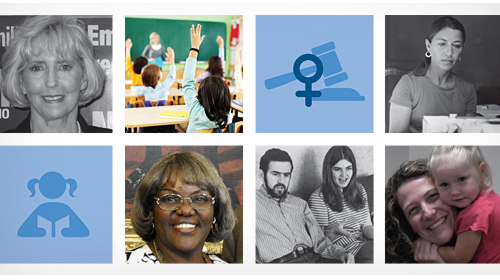
How many times do we need to hear about a pregnant woman being pushed on to unpaid leave or fired because her employer won't provide some type of simple accommodation – a stool to sit on, a water bottle on a retail floor, more frequent restroom breaks. This week, New York City Council stood up for women in the workplace and took an important step forward by passing the Pregnant Workers Fairness Act. This important legislation requires employers make reasonable accommodations in the workplace for employees who become pregnant.
Three-quarters of women entering the workforce will be pregnant and employed at some point in their lives. And too many will have to choose between a healthy pregnancy and keeping their job. Take our client Julie from Long Island for instance. Julie was forced on to unpaid leave from UPS when her physician recommended a light duty assignment for the remainder of her pregnancy. UPS denied Julie's request despite the fact that similar accommodations are regularly made for those injured on the job or facing a temporary disability.
This isn't fair and it happens all the time. Women make up almost half the workforce and are the primary or co-breadwinners in two-thirds of New York City's families. Forcing pregnant women out of their jobs not only hurts women, it hurts our families, our communities and our economy. And while NYC took an important step, too many employers, and even some courts, have left pregnant women out of a job.
Similar state-wide protections were introduced this past June in the New York State Legislature as a part of Governor Cuomo's Women's Equality Agenda that would prohibit the type of pregnancy discrimination faced by Julie and countless others. The measure passed as part of the 10-point package in the New York Assembly but only as a stand-alone bill in the New York Senate. As a result, it cannot be signed into law and women walked away with nothing.
It is time for the New York legislature to go back to Albany and pass this unfinished business. Women like Julie just cannot wait.
Learn more about pregnancy discrimination and other civil liberties issues: Sign up for breaking news alerts, follow us on Twitter, and like us on Facebook.

